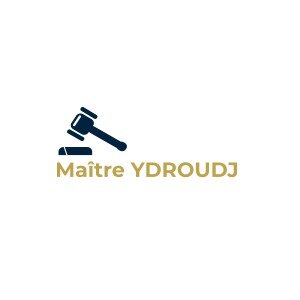Best Real Estate Lawyers in Algiers
Share your needs with us, get contacted by law firms.
Free. Takes 2 min.
Free Guide to Hiring a Real Estate Lawyer
List of the best lawyers in Algiers, Algeria
About Real Estate Law in Algiers, Algeria
Real Estate in Algiers, Algeria is governed by a combination of civil law, Islamic law, and local regulations. Property ownership is highly valued, and the real estate market is steadily growing in Algiers, making it an attractive investment hub.
Why You May Need a Lawyer
Whether you are buying, selling, leasing, or managing real estate in Algiers, there are several situations where legal assistance may be necessary. A lawyer can help with property transactions, lease agreements, zoning regulations, construction disputes, and more.
Local Laws Overview
Key aspects of local real estate laws in Algiers, Algeria include property rights, land use regulations, property taxes, inheritance laws, and contractual obligations. It is important to be familiar with these laws to avoid any legal complications.
Frequently Asked Questions
1. Can foreigners own property in Algeria?
Yes, foreigners can own property in Algeria, but certain restrictions may apply depending on the type of property and location.
2. What are the steps involved in buying real estate in Algiers?
The process involves signing a purchase agreement, obtaining a property title deed, and registering the transaction with the relevant authorities.
3. How are property taxes calculated in Algiers?
Property taxes in Algiers are calculated based on the market value of the property and are subject to annual updates.
4. What are the rights of tenants in Algeria?
Tenants in Algeria have certain rights protected by law, including the right to a secure lease agreement and fair treatment from landlords.
5. How can I resolve a real estate dispute in Algiers?
Real estate disputes in Algiers can be resolved through negotiation, mediation, or legal action in court with the assistance of a lawyer.
6. Are there any restrictions on land use in Algeria?
Yes, there are zoning regulations and land use restrictions in Algeria that must be adhered to when developing or using property.
7. Can I inherit property in Algeria?
Yes, property inheritance laws in Algeria allow for the transfer of property to heirs through succession laws.
8. How can I protect my property rights in Algeria?
You can protect your property rights in Algeria by ensuring proper documentation, registration, and compliance with local laws.
9. What are the legal requirements for leasing property in Algiers?
Leasing property in Algiers requires a written lease agreement, compliance with rent regulations, and adherence to tenant rights.
10. How can a lawyer help me with real estate transactions in Algiers?
A lawyer can provide legal advice, draft contracts, conduct due diligence, represent you in negotiations, and ensure compliance with local laws.
Additional Resources
For more information on real estate laws and regulations in Algiers, Algeria, you can contact the Ministry of Housing and Urban Development or consult a local real estate association for guidance.
Next Steps
If you require legal assistance with real estate matters in Algiers, Algeria, it is recommended to seek the expertise of a qualified real estate lawyer who is familiar with local laws and practices. They can provide you with valuable advice and representation to ensure your interests are protected.
Lawzana helps you find the best lawyers and law firms in Algiers through a curated and pre-screened list of qualified legal professionals. Our platform offers rankings and detailed profiles of attorneys and law firms, allowing you to compare based on practice areas, including Real Estate, experience, and client feedback.
Each profile includes a description of the firm's areas of practice, client reviews, team members and partners, year of establishment, spoken languages, office locations, contact information, social media presence, and any published articles or resources. Most firms on our platform speak English and are experienced in both local and international legal matters.
Get a quote from top-rated law firms in Algiers, Algeria — quickly, securely, and without unnecessary hassle.
Disclaimer:
The information provided on this page is for general informational purposes only and does not constitute legal advice. While we strive to ensure the accuracy and relevance of the content, legal information may change over time, and interpretations of the law can vary. You should always consult with a qualified legal professional for advice specific to your situation.
We disclaim all liability for actions taken or not taken based on the content of this page. If you believe any information is incorrect or outdated, please contact us, and we will review and update it where appropriate.
Browse real estate law firms by service in Algiers, Algeria
Algiers, Algeria Attorneys in related practice areas.








